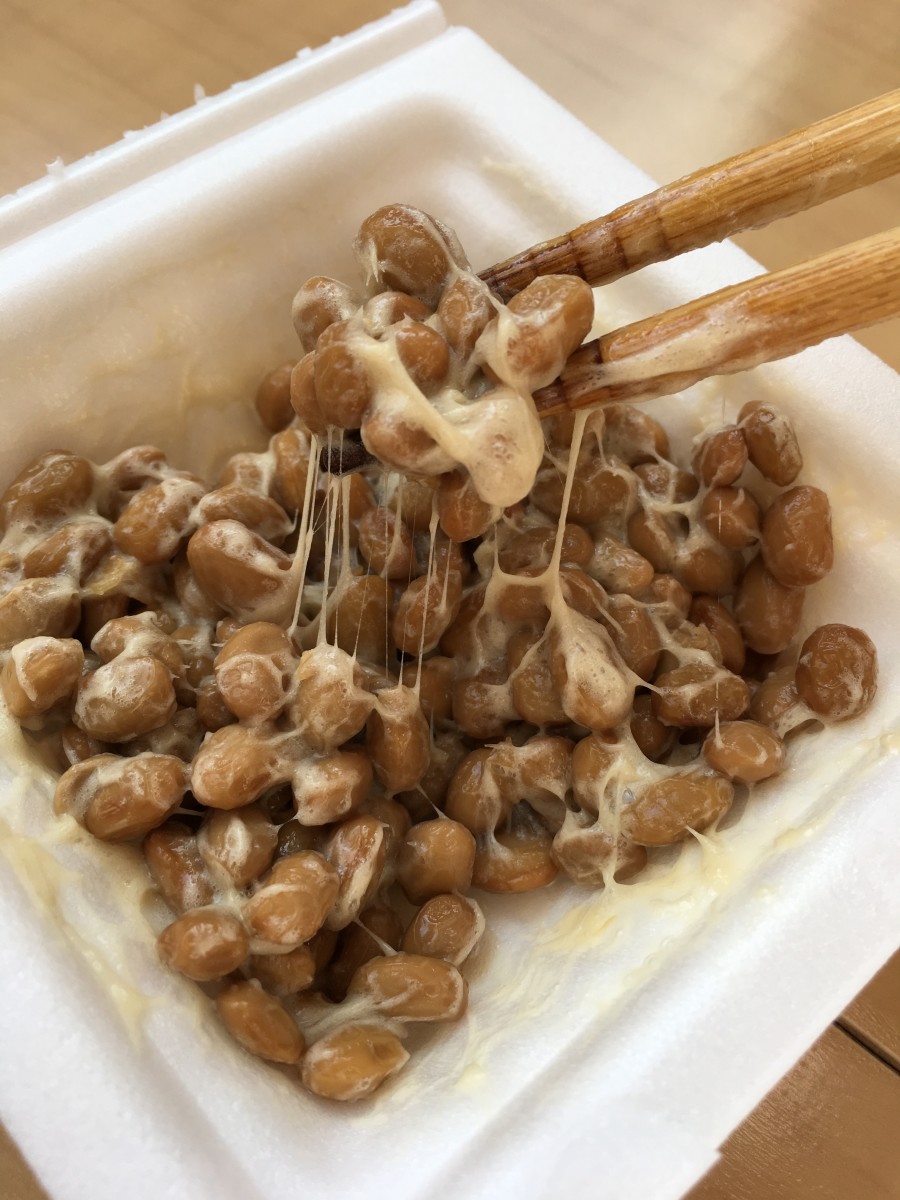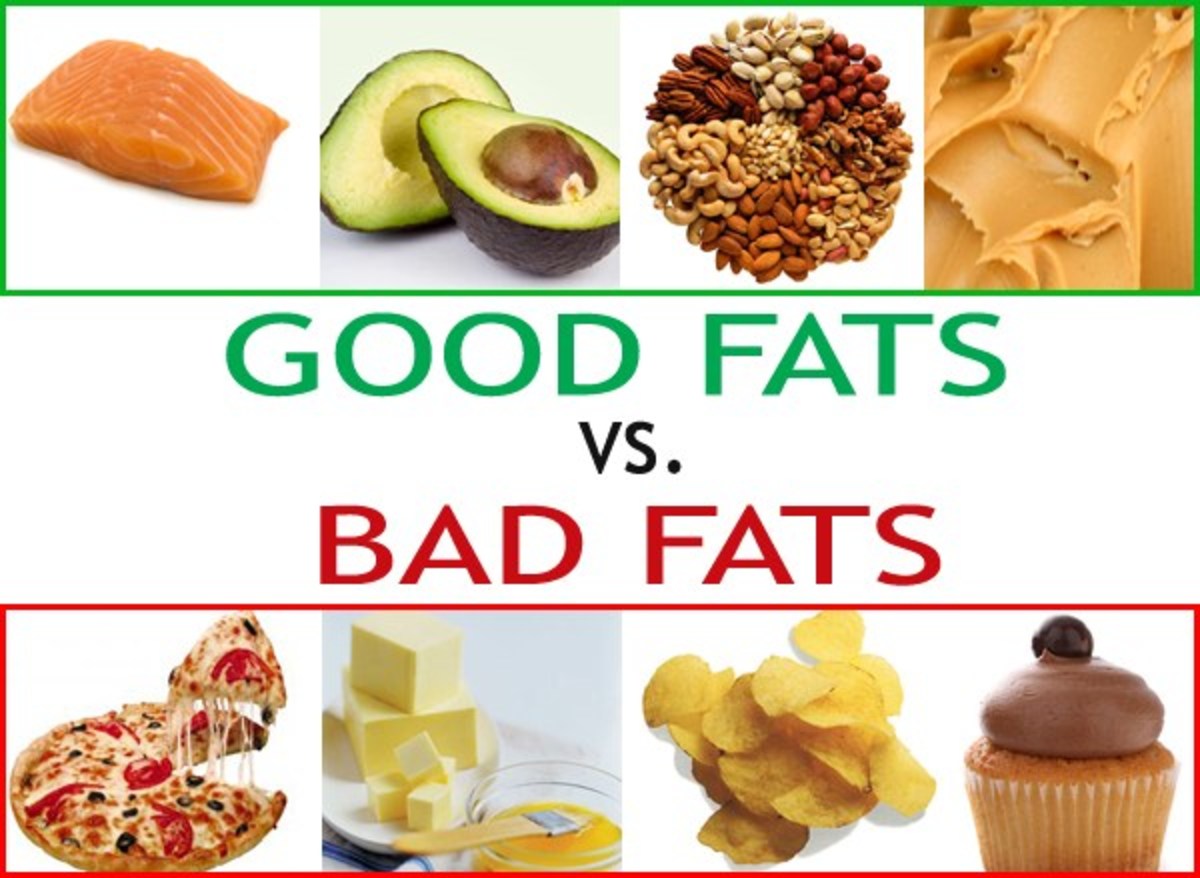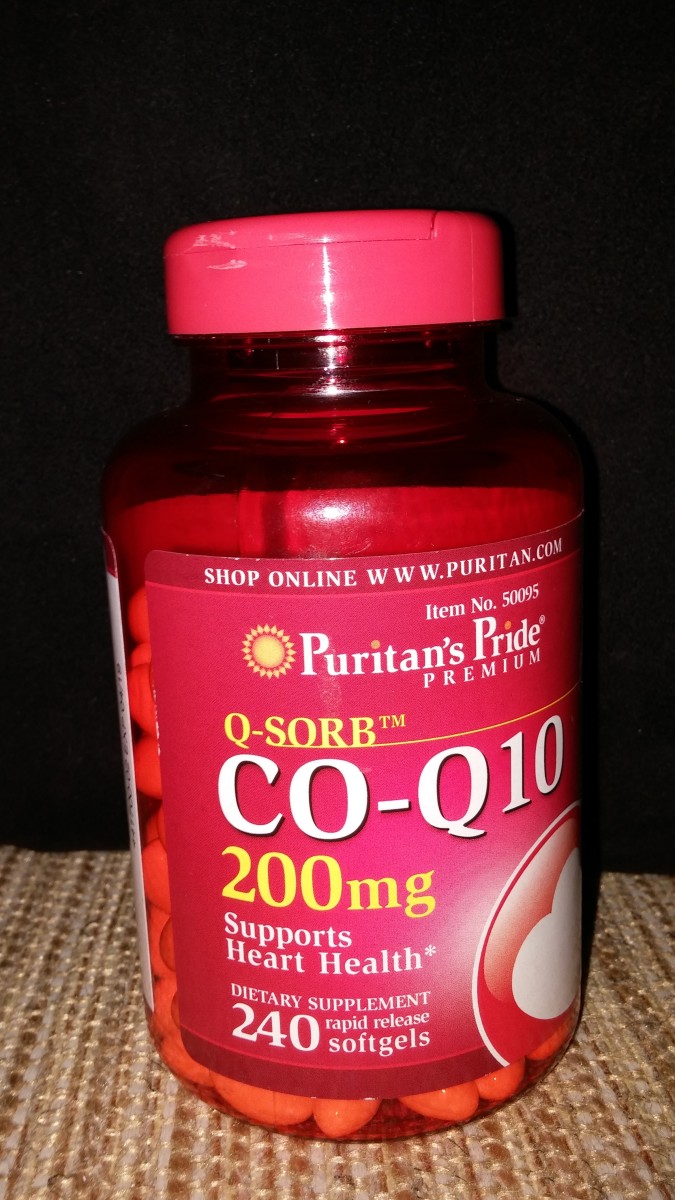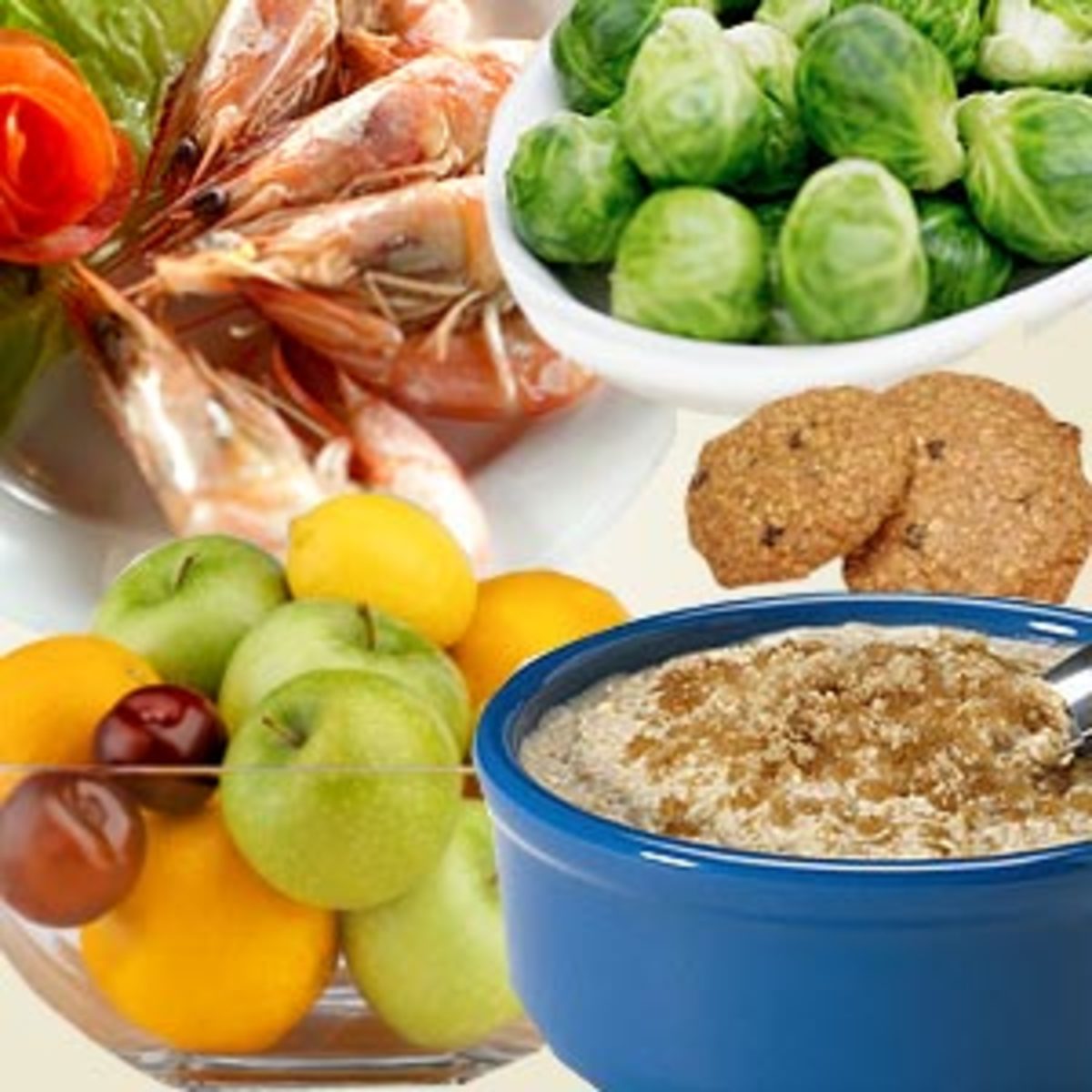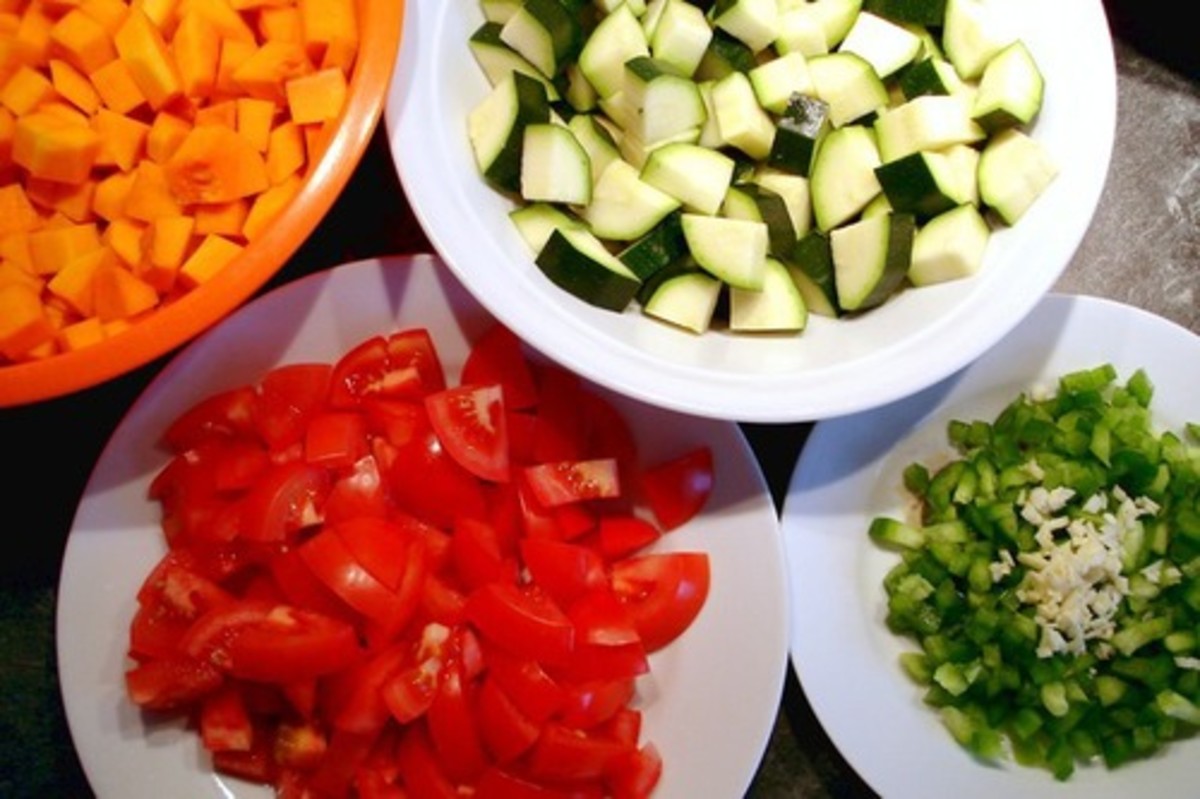Eat Salt and Fat
Your Poison, My Dessert
We all know what a healthy diet is, right? Sorry. We don't. Anywhere you go in the world you will find wildly different advice.
An example, Americans don't think anything of putting ice cubes in drinks. Germans think that's crazy. As my German teacher put it, it shocks your stomach. I thought she was nuts, but as I got older I found out that I get acid reflux from too much iced drink! Could the Germans be right?
I lived several years in Central America. The people there had theories of diet totally different from typical Norte Americanos. Their theory revolved around balancing the effects of hot and cold on the body. This was confusing to us foreigners, since they were not referring to the actual temperature of the food, but to the effect of the food on the body.
For example, oranges and orange juice have a cold effect, so too much can make you sick, especially if you drank orange juice in the morning, when the body is naturally cold. Specifically, too much orange juice will give you a cold or flu! Alcohol can have varying effects depending on the type of drink. Beer chilled the body and rum heated it. Drink rum if you have a cold and avoid beer. Coffee, interestingly, was both hot and cold, depending on what time of day it was, according to one older man I spoke with. You can drink hot coffee in the morning to add a hot effect to your body, but you can also drink hot coffee at noon to give you a cooling effect.
Confused? We sure were. Every food had a specific hot or cold effect on the body, and people there would argue for hours about which foods were hot or cold. They didn't agree, and we were never convinced. We had our own silly ideas about diet and were not about to give them up! We continued to drink orange juice in the morning, and when we had colds, no matter how much they scolded us.
In Japan, the common belief is that rice is a great health food. White rice. A meal without white rice can hardly be a healthy one for Japanese. They also eat piles of salt, which any American would say is a short road to a heart attack. But somehow, the Japanese manage to live nice, long lives anyway. When you add in the heavy smoking and drinking Japanese love, you gotta wonder what's going on there.
What silly ideas do Americans hold dear?
How about these: Salt is bad for you, alcohol is bad for you, fat is bad for you, fruits and vegetables are good for you. Sorry folks, none of these ideas have much real evidence in the science. Lets look at salt first.
SALT
Here is a link to the latest research. They looked at thousands of people and could find no link whatsoever, none, zip, zilch and nada, between eating more salt and the risk of dying younger.
And here is another. This one is even better! They found that people with the lowest salt intake were MORE likely to die younger than those with the highest salt intake. Read them words and weep, health nuts! Now, these are only two studies, and there are lots of studies that show higher salt means higher blood pressure, and higher blood pressure means higher risk of heart attack and stroke.
But, that is a long chain of reasoning. Cut to the chase. I don't really care if it is a heart attack or something else that kills me. What counts is a long and happy life, not what finally ends it. So I am more likely to get a stroke if I eat lots of salt? So what? If I also get to enjoy a longer life BEFORE the stroke, that's fine with me! Plus, I get to eat good-tasting food, instead of bland 'health' food. Be happy, live longer. Got a problem with that?
VEGETABLES
How about eating loads and loads of veggies and fruits? That has GOT to be really really good for you, right? Your Doc says so, your Mom says so, and virtually every health nut on the planet says so. Sorry. Show me the EVIDENCE. Here is a recent study of 135,000 people. They divided them into four groups depending on whether they ate their veggies or not and how much they ate.
The difference could be measured, but only by scientists with really really powerful computers to run the statistics on. Go ahead, click through the link. It is a typical paean to the glories of vegetables, until you think about what the actual numbers mean. The people who religiously ate huge quantities of veggies did die at a tiny little bit lower rate than those who ate little or none at all, although the researchers were not able to figure out exactly why. It could simply be that rich people with good health care and good doctors can also afford to eat more fruit and vegetables.
But at least there might, may, possibly be some good in vegetables. So go ahead and eat them, if you like, but make sure to salt them well, if you want to live long on the Earth. There is no fountain of youth to be found in vegetables. The advantage to eating piles of vegetables is so small it is nearly impossible to measure, and may not even exist if you consider all of the possible confounding factors.
ALCOHOL
These days it has become common knowledge that small amounts of alcohol may be good for you, and isn't that a poke in the eye to the nanny-types. But, how much really is good you, and how much is too much? Well, according to this article from the National Institute on Alcohol Abuse and Alcoholism, men can down FOUR drinks a day, and still be getting a health benefit. A shot of whiskey at breakfast, lunch, dinner, and then a sleeper! Or four cans of redneck special, Pabst Blue Ribbon Beer! It doesn't much matter what you drink, it seems.
So, all you annoying people who want to be mommies to adults you don't even know, trying to get us all to give up drink, please just shut up. You don't know best.
FAT
We all know that eating lots of fat is really, really bad for us. Right? Fat is associated with all sorts of diseases, from cancer to heart disease. Too bad there is precious little evidence that people who eat low-fat diets live longer or get sick less. In America people have been eating less fat since about 1980. Just note how much slimmer and more healthy everyone has become in the last three decades. Or not. How about that. As fat in the diet has decreased, obesity has, shall we say, expanded.
Also, we know that eating fat raises cholesterol in the blood. That's a bad thing, right? Maybe, maybe not. Since we know that low cholesterol levels mean higher death rates! Run a quick Google search on the term 'Low Cholesterol Death' or 'Cholesterol Mortality Rates'. Note all the links revealed, links to real science, not just quack websites.
Now please note, really super high cholesterol does lead to higher rates of heart disease, and at some point that reduces longevity. That isn't controversial. But, heart attacks are not the only thing that can kill you. If you have hypercholesterolemia, a hereditary disease that causes extremely high cholesterol, that is a very different thing from people with normal but somewhat high cholesterol. High cholesterol is associated with longer life, low cholesterol with early death. Follow the science!
Old people don't have magic diets that keep them healthy. People who live to be a hundred eat what other people eat, drink a lot more alcohol, and eat just as much salt.
So, what is my own bias? Science. I am a typical American in that. I tend to believe what scientists report. The problem with science is that it works great for fairly simple questions, and a lot less well for very complex ones. Humans have lived on the Earth, as modern humans, for some 200,000 years. In that time we have spread to every continent and adapted to diets ranging from pure meat, as in traditional Eskimos and some African peoples, to pure vegetarian. Even the vegetarians eat wildly different collections of plants depending on their home environments. Most humans everywhere eat an assortment of plants and meat.
Teasing out the effects of one food on human health is not easy. People, even scientists, who claim to know the final answers are either fooling themselves, or trying to fool you. Take it all with a grain of salt. They probably just want you to buy their latest diet book.
*As I write this, we are preparing for Thanksgiving. I plan to eat a feast tomorrow, and not worry much about what is in it.

